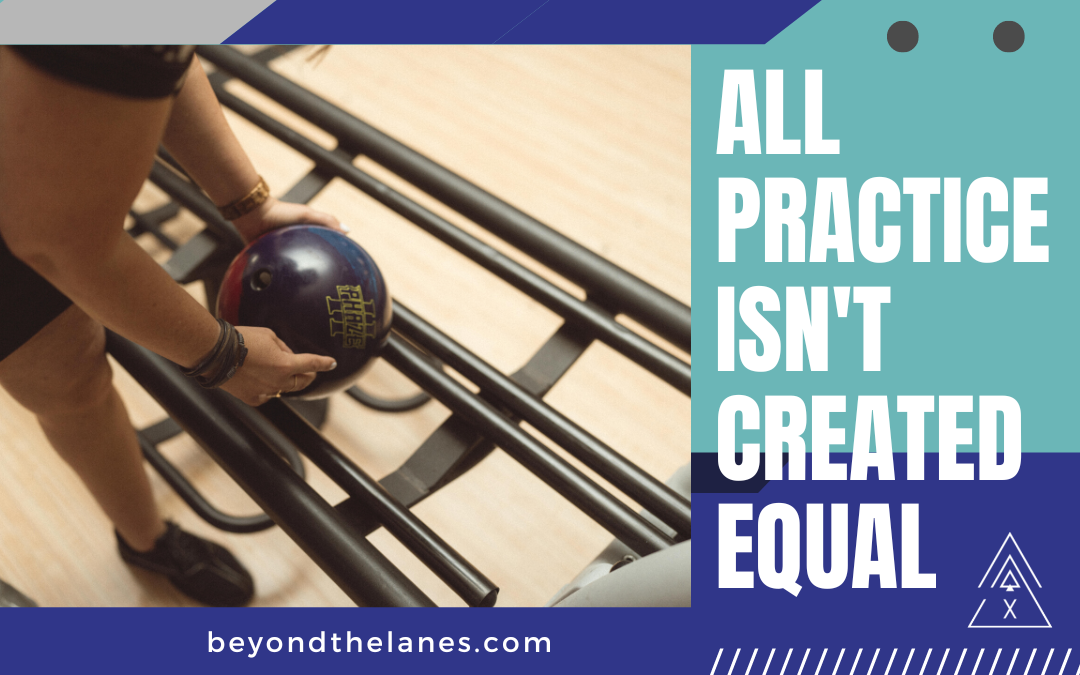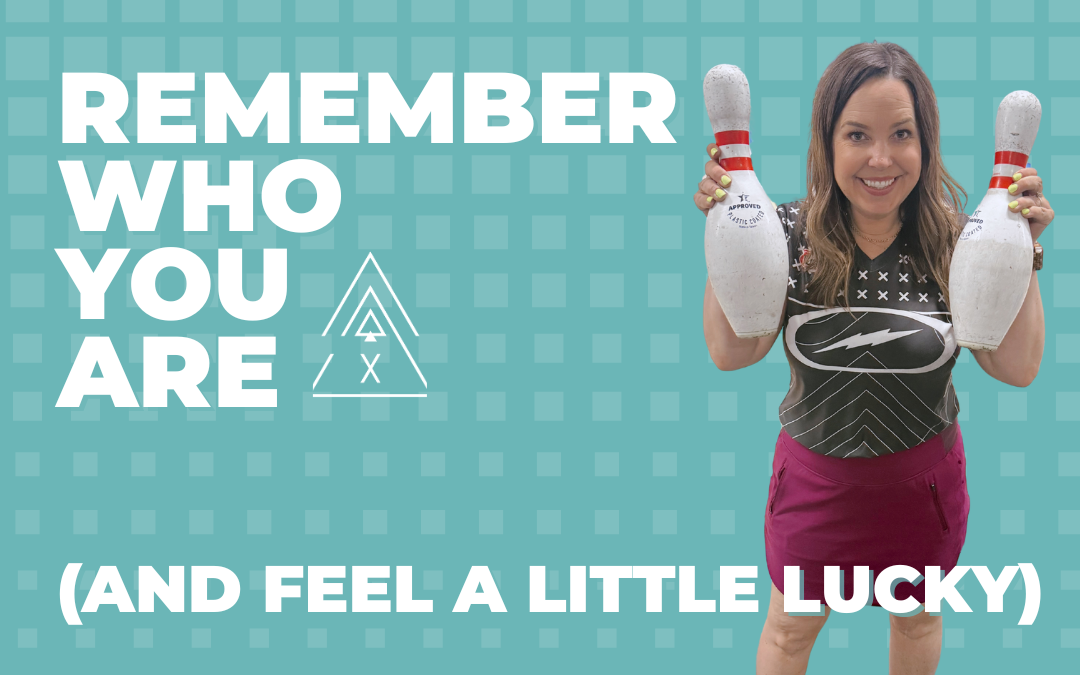There’s a special student who I have been coaching for years. His work ethic is strong, and his passion runs deep. We meet up every few weeks for a lesson, but this summer, more than a few weeks went by between our lessons. When he showed up, I almost didn’t recognize him. His game looked very different. I know he had been practicing on his own. A lot.
But to me, it seemed like he was starting to go backward in his game. His dad told me that because he was old enough to drive, he had started driving himself and going to practice by himself a lot. That sounded very promising for his game. Before the break, his game was really looking good, and he really had a lot of elements of his game dialed in.
Then, we met again for the first lesson after that break, and I noticed he had developed some bad habits that were impacting his game. At first, I thought to myself, he was in such good shape on the lanes – what happened? Next, I thought, I bet this happens to a lot of people, and it could be an important topic to dive into here in a post.
How is it that someone can go backward, even when they are actually practicing with a heightened level of commitment?
In the case of my student, he was practicing more but doing most of his practicing by himself. He didn’t have an extra set of eyes behind him to see what was happening in his game. He was making mistakes without seeing them.
When you’re on the lanes alone, it’s very easy just to accept how you are practicing. You can fall into habits and the feeling of being comfortable in that practice. Yet, you are likely also doing a lot of things that you don’t even realize you’re doing. You can quickly get really good at doing something wrong – without ever knowing it. And if you’re practicing the wrong things, it doesn’t matter how much you practice. In fact, the more you practice the wrong things, the more you deepen those errors in your game and in your brain. You’re actually becoming a master…of doing things wrong.
There’s something called the “10,000-hour rule,” and the idea was really popularized in Malcolm Gladwell’s book Outliers. It suggested that you can master almost any skill with enough intensive hours focused on it. However, I don’t totally agree with that idea. Focused repetition is not enough to master a skill. You can be focused on the wrong things or repeating the wrong thing for all of those hours. And in the end, you’re not going to be a master if you were doing any of it wrong. You can spend all that time on something and still not be great at it.
The 10,000-hour rule – the way it has been popularly understood – doesn’t address the fact that what you’re practicing is more important than how much you’re practicing.
Personally, I think for any skill, it’s about practicing the right things in the right ways and also having the right guidance. I have always believed in quality over quantity when it comes to practice. You can practice more than anyone, but you are not necessarily mastering your game.
It’s also about directing all that effort into the right areas. I think that is the key to a successful practice. To me, that’s more important than just putting in the hours.
I asked my friend, psychologist Dr. Weems, for his perspective.
According to Dr. Weems, “there is no substitute for quantity. There’s no substitute for quality. The two are not mutually exclusive. Mastery requires both. This is not an either/ or scenario.”
Dr. Weems added, “in my opinion, it’s a both/and scenario, especially as the foundation is being laid and fortified. Once relative mastery has taken place, it typically requires less time (quantity) to maintain the mastery of the skill set than it did to initially acquire it.”
That thinking makes so much sense and is actually more in line with the original study. What many people also don’t know is that the original study (published in a 1993 paper) determined 10,000 hours as leading to mastery but also emphasized the importance of guided practice, not just practice. That part doesn’t get talked about, though. The original study actually didn’t suggest that any hour spent on something is effective at achieving mastery. Instead, one of the study’s researchers (Anders Ericsson, a professor of psychology at Florida State University) specifically suggests that guidance from a teacher while practicing is also critical to mastery.
To maintain the quality side, I think it is really important to have outside expert eyes on your game. It helps you spot any areas for improvement as well as any bad habits or outright bad moves. It’s also why some bowlers video their practice even when they practice their game, just so they can look at their game from the outside or even share it to get another person’s perspective.
When you practice on your own, you don’t know what you can’t see.
Dr. Weems agreed. “Malcolm Gladwell’s book Outliers popularized the notion of 10,000 hours for mastery [and] you’re correct in your thinking around intentionality, another set of eyes, and quality.”
Fortunately, my student was willing to acknowledge where his game had slipped after I pointed it out. He took getting his game back on track very seriously. We worked together to undo a bunch of his habits. I gave him a very specific list of things to work on, which he did very diligently. In fact, he started sending me videos of his practices almost every day.
Making mistakes is normal. But sometimes, the only way to see them and learn from them is to ask for help. You can’t expect to know and see and feel everything. When you acknowledge what you don’t know or can’t see yourself, it’s actually empowering.
When I embrace what I don’t know or can’t see and allow others to help and support me, it always leads to growth and forward steps. Sometimes it can feel vulnerable letting someone take a close look at your game for you. But you don’t see what you don’t see, and there is no shame in allowing others to help us see and know what we can’t naturally see ourselves. Accepting that outside perspective keeps us growing and stepping forwards rather than backward, in our game as well as in life.
Just remember, reps don’t equate to greatness. Focused reps with a trained eye behind you will help you get there, though.









I’m a lefty. Before l start bowling from my normal approach, l took a page out of your book. I saw you practicing and saw you roll some at your target from the foul line. Then you gradually backed off until you got to your normal approach. I’ve been doing the same thing and it works. I’ve seen you practicing on Wednesdays at DRB.
Hi Michael,
Glad i could help you! It’s a great way to warm up, too!
Some words of wisdom from a music professor I was sitting next to on a long plane ride: practice doesn’t make perfect, practice makes permanence
He would say this to his music students, but I’ve found it helpful for bowling practice
I totally agree!